Searching For Business Design?

Have you tried to have a new business idea? For some entrepreneurs, this idea is natural, maybe it comes from a family business, or the founder has experienced an unsolved problem firsthand. But not all aspiring founders know what the company should do. Where would you start?
Many business schools will recommend an established formula: First, start by identifying problems in the world or life. Then develop a solution. Of course, there are other methods, such as assessing personal skills and abilities, using design thinking, conducting market research, and so on. But a project is often overlooked or used as an afterthought.
That element is a sense of purpose. It is not just the driving force behind a company; it can also be the seed of a business idea.

Goals before question
In this alternate statement, the sense of purpose — personal and company — comes first and helps guide the rest of the process. Forget about quickly formulating your corporate mission statement and adding it to your promotional video at the last minute. Instead, try asking yourself the following questions before you begin:
- What is my personal purpose?
- Objectives on which I want my company to work?
- What end goals drive my ambitions?
I have some preliminary ideas, let’s see if I can dig deeper. You may have heard of the “five whys” method, which was originally used in a business setting to understand the core of the problem. Here, you can also apply it to your own goal-seeking journey. Ask yourself, “What is my personal purpose?” Think of an answer. Then challenge the answer by asking “why?” Repeat five times (hence why five) as a way to get closer to boosting your score. This is essential, not only as a personal self-awareness plan but as a key aspect of your business plan.
For example, suppose you start with the following answer: “My purpose is to succeed at work.” Why? Maybe it’s because if your work goes well, you will be very happy. why? It may be that you can see how your work affects others, which gives you a sense of pride. why? Because you want to do an important job. why? Because you want to feel that your work contributes to the world or gives back in some way. why? Maybe you want to make the world a better place. For you, it is important that your work reflects the values in which you believe.
There is nothing good or bad about working this way. It is just a tool that can help you explore your intentions in greater depth. You don’t need to finally get the answer on how to change the world. If it makes sense to you (for example, living a real life, taking care of your family, or connecting with your community), it should be included.
Return to topic
Suppose you have discovered a basic sense of mission or have examined your personal mission in more detail. What’s Next? There are several ways to use a sense of purpose to guide business plans.
First, you can go back to the traditional model of finding a problem in an existing market and then looking for a solution, but this time, look at it through the lens of purpose. To take a broad example, if your goal is to “create happiness for others” (taken from the Disney Research Institute), you can see the problems in your market through this lens. How can you find a solution to the problem of maximizing happiness while achieving functional and profit-oriented results? Using the objective lens can lead you to solve the problem in a different way, or to solve the problem in a completely different way.
Second, you can use your sense of purpose to actually formulate the business idea itself and position your market, problems, and solutions. Let’s take Glossier’s beauty jammer as an example. Its corporate mission statement is to “democratize beauty” and “voice through beauty.” For Glossier, the result is a consumer-centric company that emphasizes inclusiveness. However, starting with a mission statement, you can generate hundreds of other ideas to achieve the same purpose. This is a creative process, and if you are considering your own brainstorming business ideas, you can use your personal sense of purpose as a starting point.
Finally, you can readjust your existing business philosophy to reflect your personal mission and purpose. Suppose you have seen a market problem, found a solution, verified it with consumers, and then started building. No matter where you are, a sense of purpose is still an important part of your strategy. At this later stage, try to find out exactly what needs you meet for your customers or users. This may go deeper than products or services. Think about values, experience, and relationships. From there, you can work backwards to see what purpose your company serves.
Purpose of purpose
What is the purpose of all these purpose-seeking tasks? When it comes to entrepreneurial lifestyles (long hours, perseverance, exhaustion), is it helpful to have a sense of purpose? In fact, research shows that this is the case.
A recent Harvard Business Review study showed that entrepreneurs with a sense of “harmonious passion” (that is, motivated by work because it brings satisfaction and personal identity) are less likely to be so than entrepreneurs with a sense of “harmonious passion. “May report burnout by experiencing ‘obsessive passion’ (ie being motivated by work due to status, money, or other external rewards).
Also Read: Entrepreneur’s Guide For Progress
The Entrepreneurs Diaries is now available on Telegram. Join our telegram channel to get instant updates from TED.




